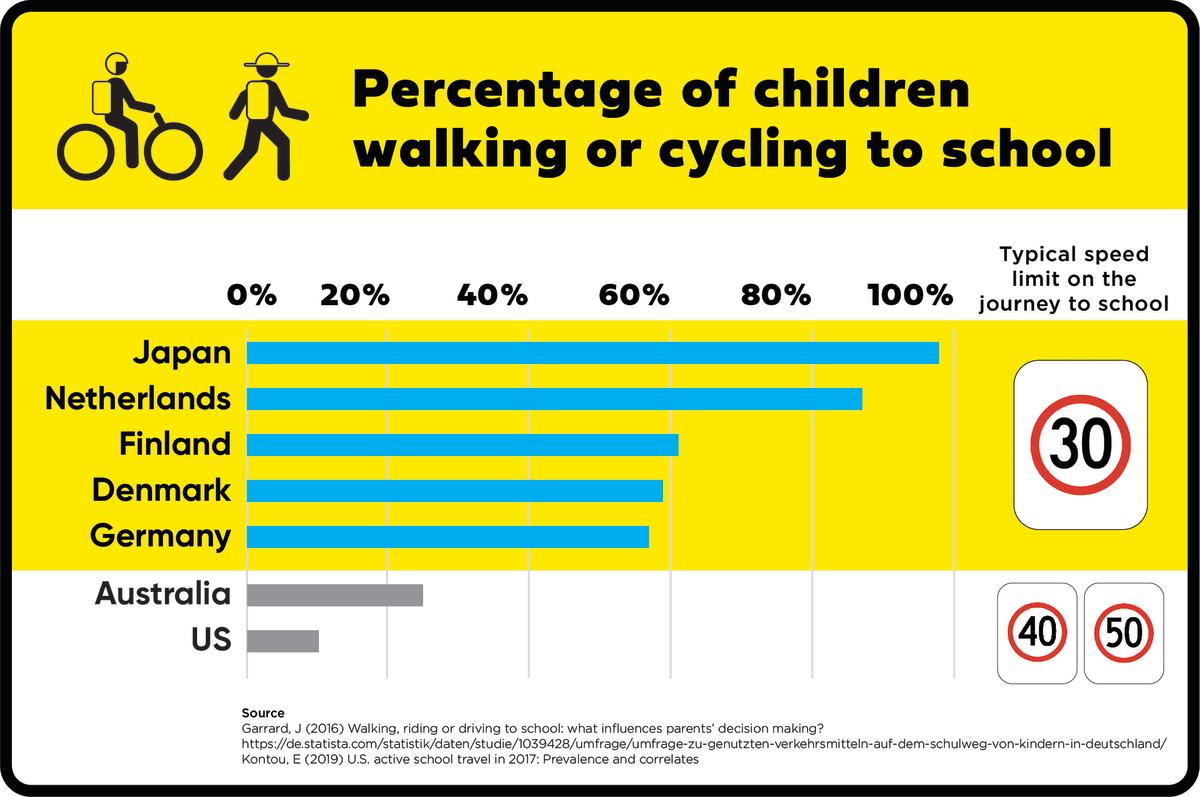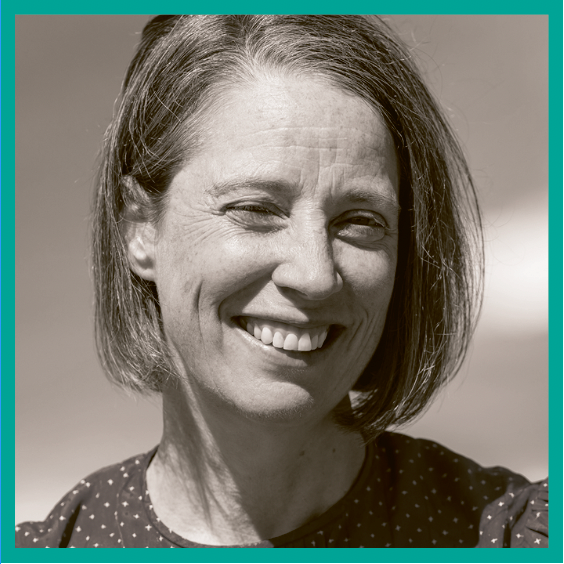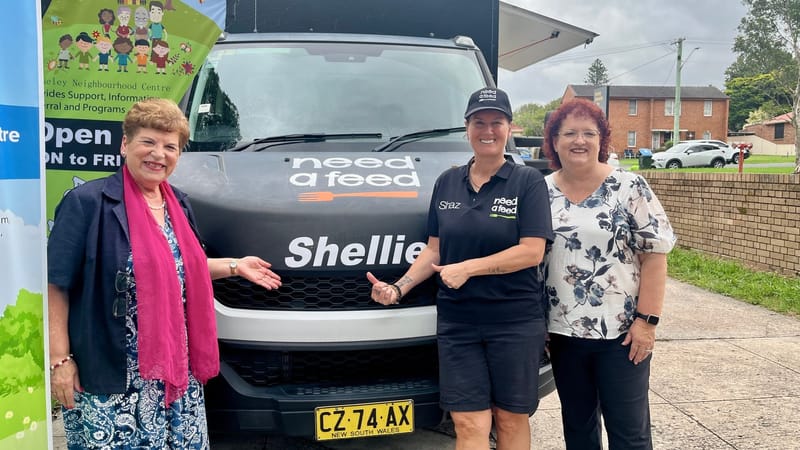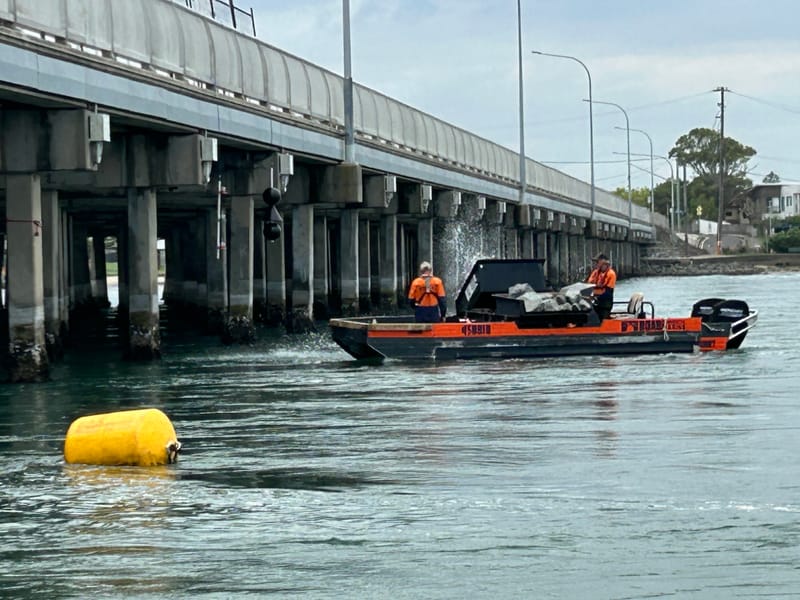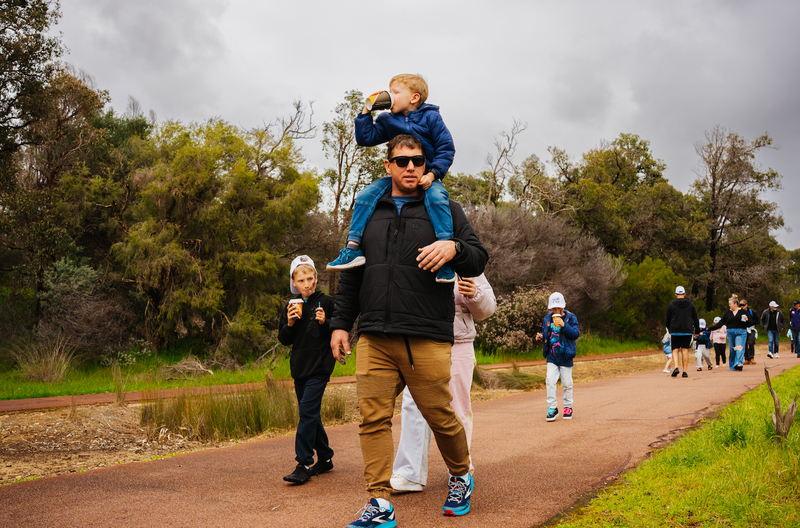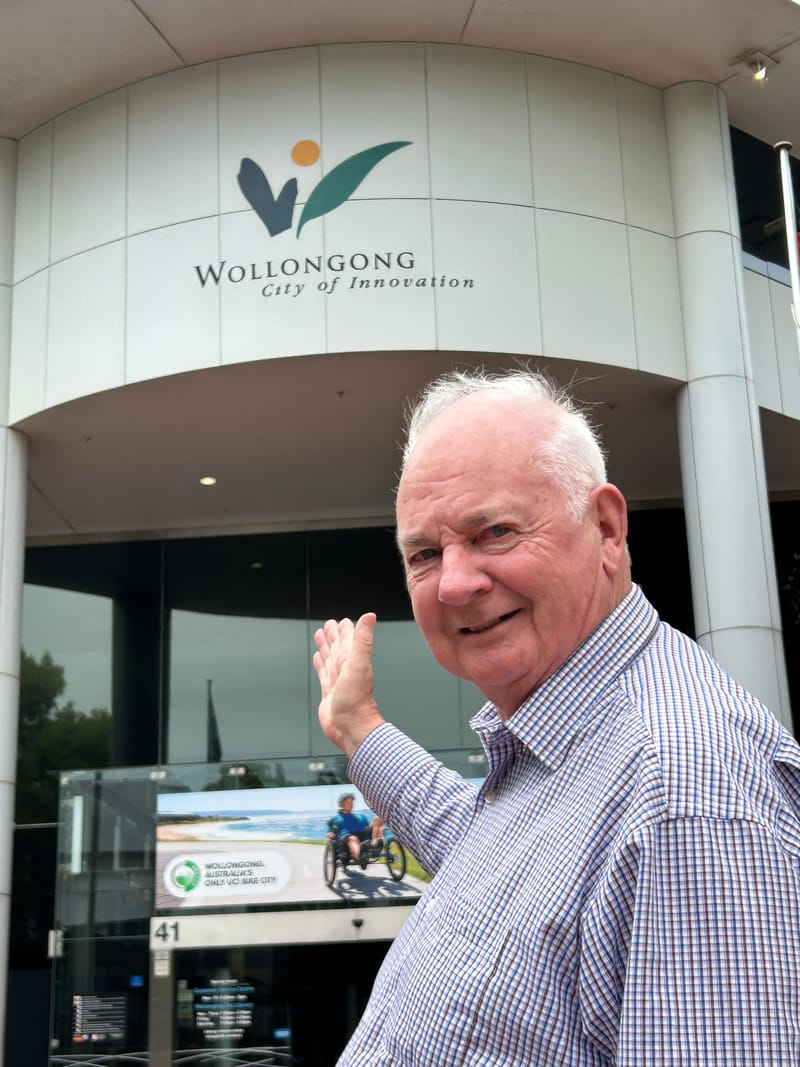What if cars were guests?
For Lena Huda, the idea of 30km/h suburban speed limits, playing tennis in the street and walking solo and safely to school from age six isn’t a pipe dream. It is a memory. Lena grew up in Germany, home of the high-speed Autobahn and also of...
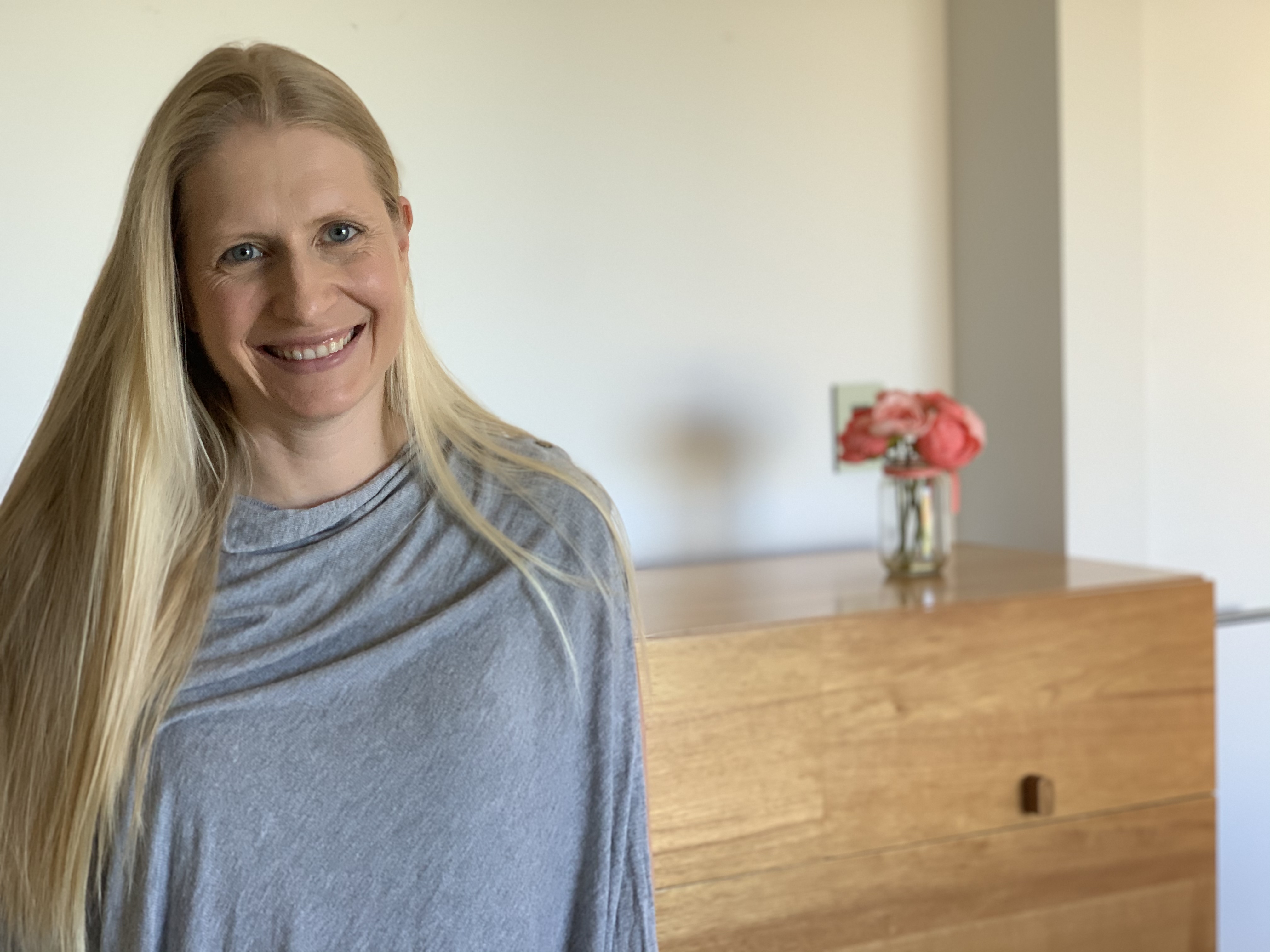
For Lena Huda, the idea of 30km/h suburban speed limits, playing tennis in the street and walking solo and safely to school from age six isn’t a pipe dream. It is a memory.
Lena grew up in Germany, home of the high-speed Autobahn and also of suburban slow zones legislated since the 1980s. Founder of the website 30please.org, Lena wants the same ‘shared streets’ experience for her children growing up in Bulli and today works full-time as a pro bono advocate for road safety in Australia.
Ahead of Wollongong’s first ‘Slow Down Day’, a groundbreaking event on March 25 that she helped organise, Lena shared her experiences as a child in Germany and a parent in Australia.
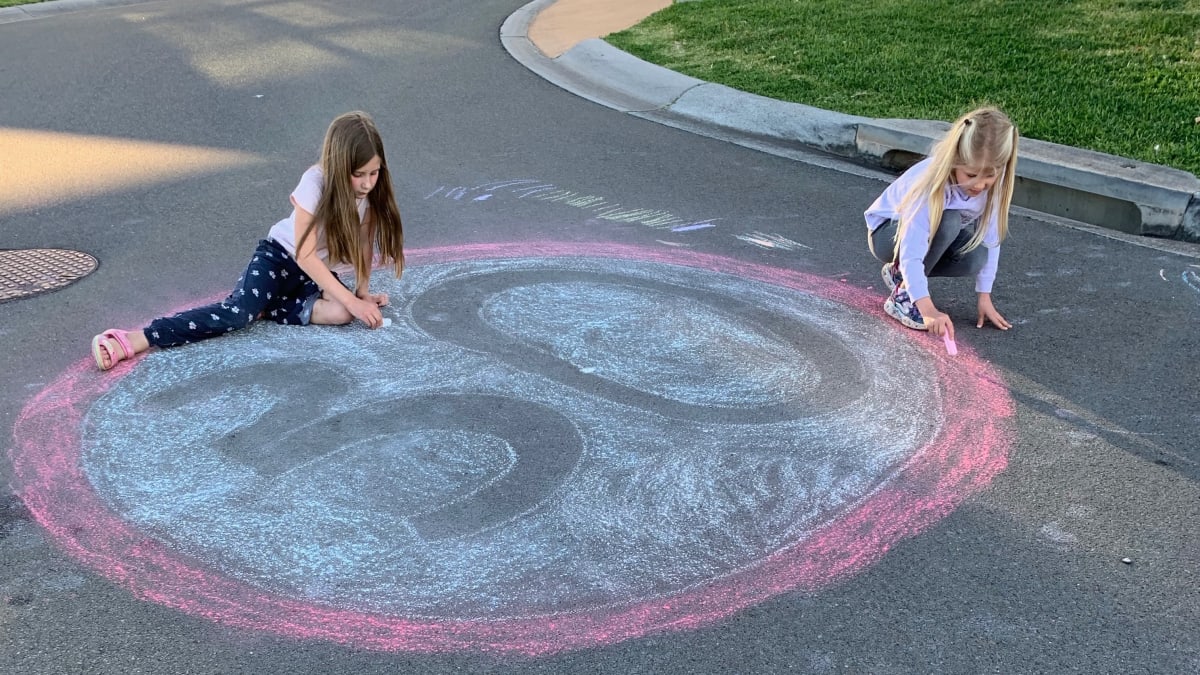
Tell us about your childhood and ‘slow streets’.
I’m one of four and we grew up in a suburban little town in Germany in the 1980s, similar to where I live now in Bulli. It was back then that 30k was introduced. Our neighbourhood was new and it was built for 30k. That meant we were always playing on the street, playing tennis on the street, learning how to ride a bike on the street, walking to school from six years old. It’s really encouraged by everyone,
by schools, police, media… teaching a kid how to walk to school by themselves. From six years old, kids have that freedom, and responsibility.
How long was your walk to school?
Twenty-five minutes. Later on, from high school, it was a 20-minute bike ride. Our school days were like four hours. We had to do homework, but then we would just play outside on the street.
Do you remember any close calls with cars?
Once, when I was about 12, I was riding my bike home and I was going down the hill, and a car was coming. They stopped and I tried to stop, but I ended up on top of the car. My parents had to pay for the damage to the car, but I don’t even remember getting a scratch. How different that would have been if that car had been moving, especially at high speed – maybe I wouldn’t be even sitting here.
I never knew of anybody killed in a car crash.
What is one of your happiest memories?
My uncle taught me how to ride a bike. I remember he was in the middle of the street and when he let go, I cycled! I was quite young and it was so much fun – the speed and the fresh air, the freedom.
Switching to today, how old are your children and do they play in the street?
I have four, aged 3, 5, 7 and 9. Yes, it actually started happening during Covid. All the kids ended up playing on the street – cricket, skateboarding, tennis, riding their bikes. I thought, ‘Wow, this reminds me of my childhood.’
We have so much more connection in our neighbourhood, people can talk and get to know each other more. When somebody drives through, one of our neighbours, they go really slow and they stop and have a chat. It’s really beautiful, but I also know it’s a very privileged street because we live in a cul-de-sac with traffic calmers.
Have you made any new friends through it?
A little boy used to do Soccer Joeys with my son, but they didn’t connect, because it was one of these supervised activities. In the lockdown, they met on the street. Now they are good mates and I’ve also become friends with his mum and dad.
What are the downsides?
I feel this tension because what if somebody says, ‘What are your kids doing here, playing in the street?’ In the Netherlands, they actually have signs saying ‘Cars Are Guests’. There’s no sign here, saying ‘cars are guests’. There’s no sign saying ‘watch out children playing on the street’. There’s a 50km sign. That’s the only sign there.
It’s an interesting concept [sharing streets]. We went to a holiday park after a year in Australia. I thought, ‘Wow.’ You know, kids are not playing on the street, and then we went to this holiday park and all the kids were allowed to go wild.
As an outsider to the culture, I thought, ‘Oh, this is so funny that you pay for the privilege to have that, but then in your own neighbourhood where you could have it without any cost … you don’t.’
It’s also interesting about stranger danger – if you think about strangers, you think about holiday parks – but in your own neighbourhood, there shouldn’t be any strangers there.
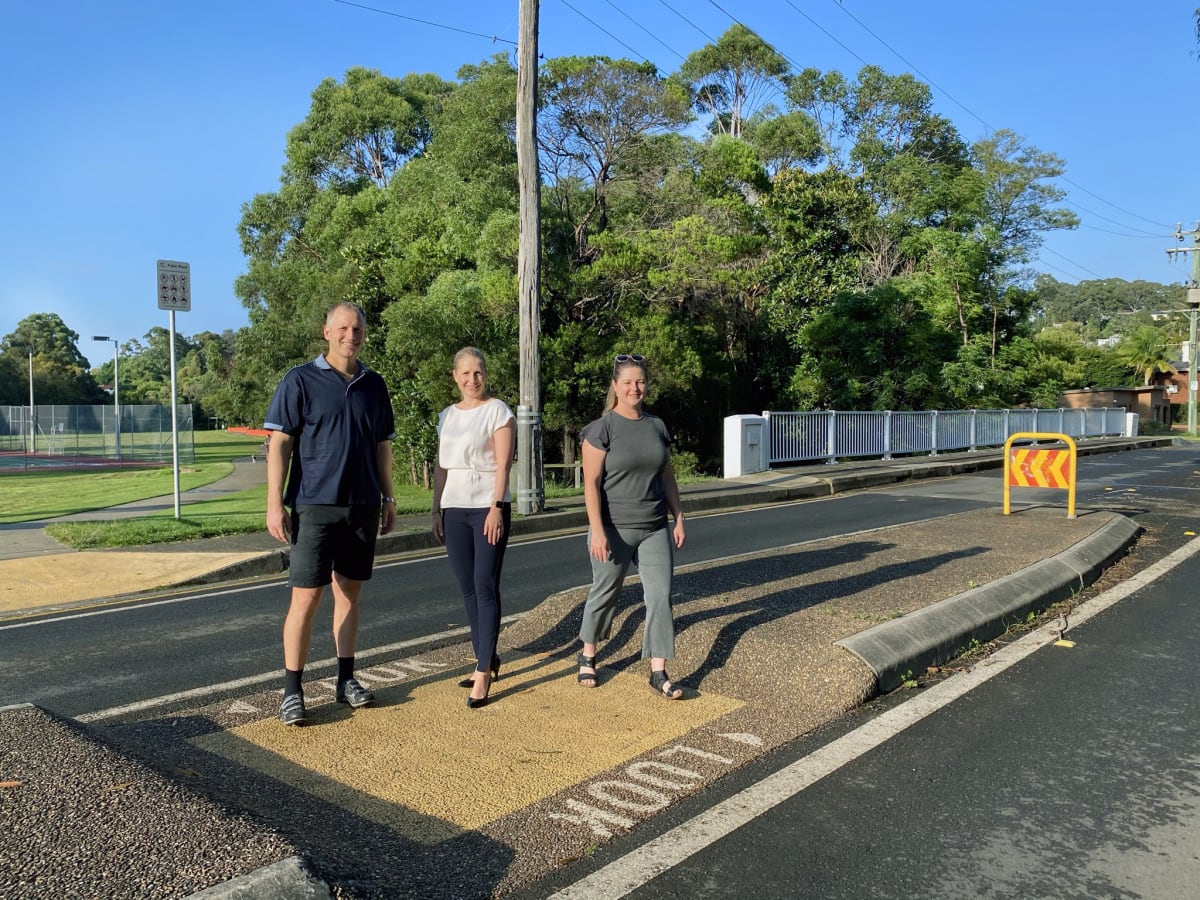
Wheels Of Change
Three local road safety advocates – Lena Huda, Jon Lindley of Safe Streets to School, and Kelly Andrews, CEO Healthy Cities Illawarra – organised a ground-breaking ‘Slow Down Day’ last month.
On 25 March, in Mt St Thomas, Lindsay Park and Figtree Heights, drivers were urged to slow down to 30km/h to make it safer for children walking, scooting and riding to and from school.
Later this year, a 30km/h trial will run in Helensburgh’s town centre.
Official wheels of change spin slowly but government statistics show action is needed: land transport accidents were the most common cause of death among children aged 1–14, according to the Australian Institute of Health and Welfare.
Read more about the ‘Three Transport Priorities’ campaign ahead of the federal election here.
